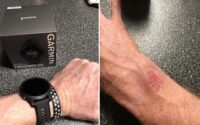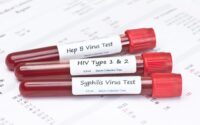Binge drinking could be reduced with this cheap pill: study
It might be worth a shot.
A new study from researchers at the University of California, San Francisco found that swallowing a pill an hour before embarking on a night out could “significantly reduce” the number of alcoholic drinks consumed and the intensity of alcohol cravings.
Naltrexone — sold under the brand name ReVia, costing about $1.60 a pill when purchased in bulk — works to inhibit the euphoric feeling of being drunk by blocking endorphins. It was approved by the Food and Drug Administration to treat alcohol use disorder and opiate dependence.
Now researchers are exploring the benefits of binge drinkers taking the drug as needed. Binge drinking is typically defined as five or more drinks for men and four or more drinks for women within the span of two to three hours.
The study, published in the American Journal of Psychiatry in December, focused on people who want to lower their alcohol intake, but wouldn’t be classified as alcoholics.

Scientists recruited 120 “sexual and gender minority” men, observing the effects of the medication over a three-month period. The double-blinded study included both a trial and a placebo group, but neither knew which group they were in — including the researchers.
The authors discovered the number of days the trial group drank excessively was reduced by more than a quarter. In fact, the effects of the “targeted naltrexone” lasted six months post-treatment, the study found.
“Naltrexone may be an important pharmacotherapy to address binge drinking in populations with mild to moderate alcohol use disorder,” the authors noted.
Nausea and headaches are known side effects of naltrexone, but the researchers claim the nausea subsided as participants got used to the treatment.
Lead author Glenn-Milo Santos, also a professor at the University of California, San Francisco, told the New York Times there is not a one-size-fits-all method when dealing with addiction or pre-addiction, but that “increasing awareness” about potential medications “is important.”

The data suggests taking the medication as needed, instead of every day, may let people feel more in control of their treatment, the Times reported, as that regimen allows dopamine levels to recover between uses.
Typically associated with college students, binge drinking has become a serious problem among other adults as well.
The Centers for Disease Control and Prevention estimates 17% of American adults binge drink, with the habit more common among men. Not only does drinking heavily take a toll on boozers’ wallets — it can also lead to negative health consequences and other tragedies.
The CDC lists unintentional injuries, violence, sexually transmitted infections, accidental pregnancies or poor pregnancy outcomes, chronic disease and cancer as some of the adverse effects of drinking too much.


One report determined consuming more than two drinks per week could spell trouble. Another claimed that hopeful fathers-to-be who drink could “impede IVF success rates.”
Alcohol flush, a common, annoying condition where drinkers’ faces flush bright red when they consume booze, could also indicate a life-threatening ailment. Research earlier this year suggested that the crimson flush isn’t just embarrassing — it could signal potential heart problems.


